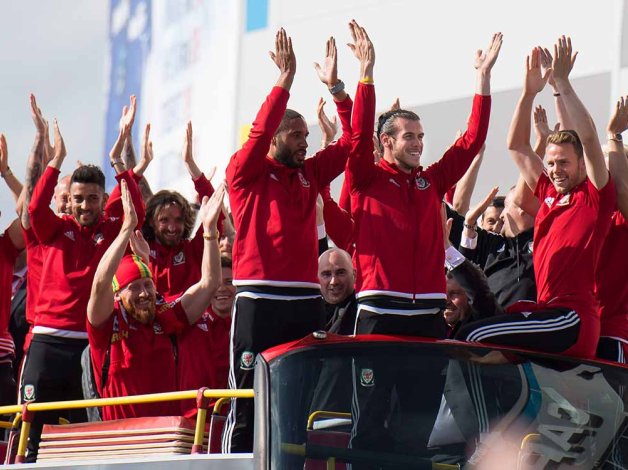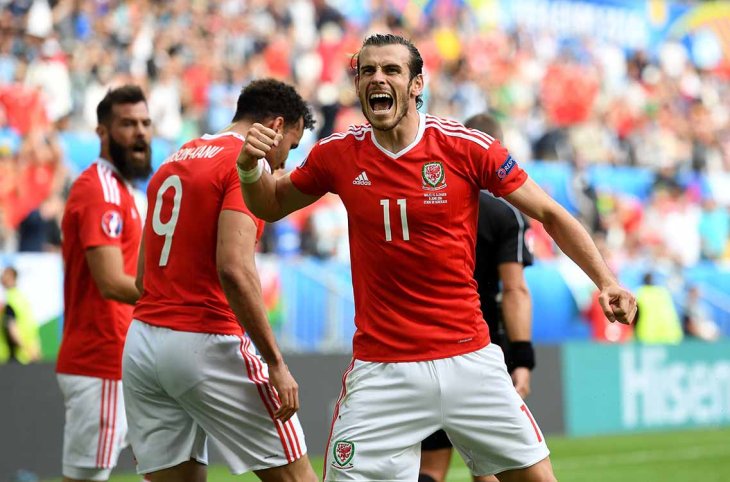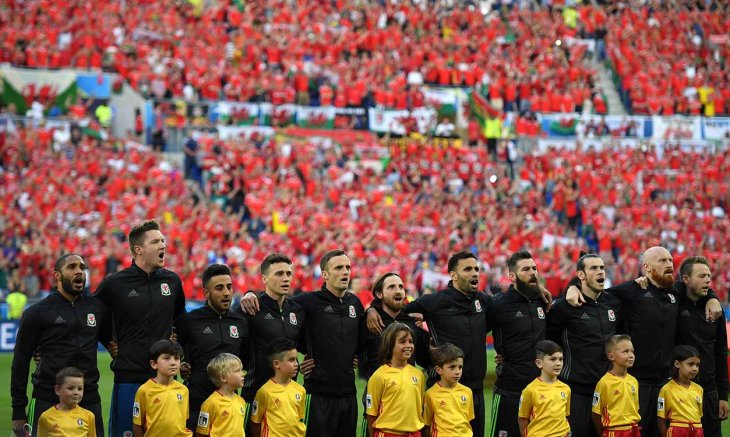
Portugal finally managed to shake off their reputation as the perennial bridesmaids of world football to win Euro 2016 - a tournament will live long in the memory among Welsh fans.
Eder Lopes, who had done little to impress during a brief and goalless spell with Swansea City last season, secured victory for Portugal in the 109th minute by drilling a 30-yard daisy cutter past a despairing Hugo Lloris to shock the hosts and provide the greatest moment in his country's sporting history.
For a player of comparatively modest stature to have scored such a brilliant and important goal was an irony for a country that has produced some of the world's great players. The power of the shot itself paid homage to the late Eusebio, while the retired Luis Figo watched from the stands and Cristiano Ronaldo was in the technical area, gesturing and shouting as if he had suddenly become the manager.
Within the initial 90 minutes, the fact that Ronaldo was unable to be on the pitch to deliver a moment of match-winning genius was the biggest talking point of the night. An early collision with West Ham midfielder Dimitri Payet left him clutching his knee and clearly struggling. After going down a second time, he limped off to have his knee bandaged up. But the damage was done. Minutes later, he realised the game was up and was stretchered off. After just 25 minutes, it seemed his chance of international glory, something that has always eluded his great rival Lionel Messi, had gone.
Instead, the Portuguese team refused to buckle. With Pepe a rock and Nani an effervescent forward presence, they withstood France's attempts to break them down. Antoine Griezmann, the tournament's top scorer with six goals, had one early header brilliantly saved, but was frustrated thereafter. Gignac nearly won the match for France when he hit the post in stoppage time, but Guerreiro struck the bar for Portugal in extra time before Eder's brilliant breakthrough.

The final had followed two fascinating semi-finals. Portugal's clash with Wales had been billed as a battle between Gareth Bale and Ronaldo, but there was no doubt about the winner, with the former Manchester United player rising to plant a superb header past Wayne Hennessey early in the second half. A shellshocked Wales had barely come to terms with being behind before Nani converted Ronaldo’s mishit shot three minutes later.
Bale certainly had his moments in the game, going close with a couple of strikes, but too often, he was having to drop into central midfield to initiate attacks in the absence of the suspended Aaron Ramsey.

Despite their loss, Wales were able to leave with their heads held high, marking their first major championships appearance in 58 years with their best-ever run in such a competition.
Prior to the tournament, many expected Wales to do little more than scrape through the group stages before their supposed inexperience proved they were out of their depth.
Instead, they took a leaf out of Leicester City’s book on how to be a successful underdog, outplaying the big boys with an even bigger heart and stubborn determination. It almost paid off until the superstar clout of Pele and Ronaldo became just too much. Their inspired Euros run has elevated Wales 15 places to 11th in the world rankings and manager Chris Coleman believes this is just the beginning for the promising squad.
Wales’ pride came in stark contrast to the humiliation of their English neighbours. The superstar-laden England squad, which compiled some of the best performing names from the preceding Premier League season, was left red-faced when they were eliminated by an Iceland side coached by a part-time dentist.
It proved all too embarrassing for Roy Hodgson - the tournament’s best paid manager with a £3.5 million annual salary - who quit within hours of the defeat.
Germany will feel somewhat different about their 2-0 semi-final loss to France. So often serial winners, anything less than an appearance in the final would mark a failure for the world champions, and although they dominated possession against the hosts, the brilliance of Lloris and the dogged resilience of Les Bleus thwarted them.
They were also let down by two pieces of wayward handling, firstly by Bastian Schweinsteiger just before half time to concede the penalty from which Griezmann gave France the lead. Then, in the second half, Manuel Neuer got caught in two minds over whether to catch or punch a cross and only parried the ball straight to the Atletico Madrid player's feet.
The tournament prompted a range of reflections. There was disappointment for the hosts and joy for the winners, as well as pride for the over-achievers from Iceland and Wales. England were left lamenting another poor tournament and Spain must face the fact that their golden era is truly over.
Nor were thoughts just focused on individual teams. Many questioned whether having 24 teams was the best idea, given the dilution of quality and the convoluted system that allowed four of the six third-placed teams to progress to the knock-out stage. Then again, one of those teams was Portugal.

